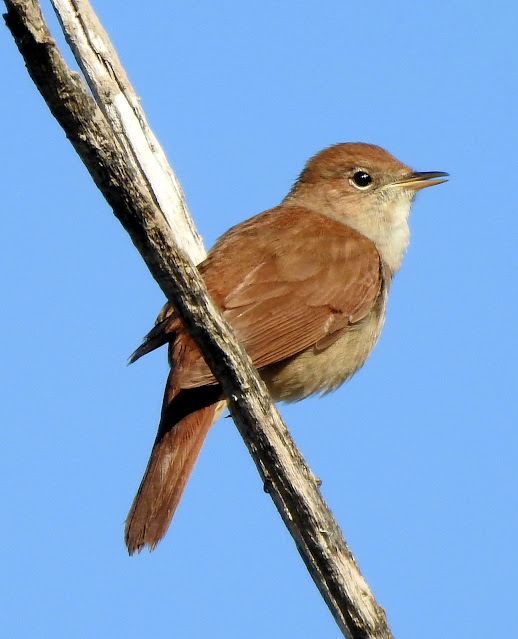Its song is particularly noticeable at night because few other birds are singing. This is why its name includes "night" in several languages. Only unpaired males sing regularly at night, and nocturnal song probably serves to attract a mate. Singing at dawn, during the hour before sunrise, is assumed to be important in defending the bird's territory. Nightingales sing even more loudly in urban or near-urban environments, in order to overcome the background noise. The most characteristic feature of the song is a loud whistling crescendo that is absent from the song of its close relative, the thrush nightingale (Luscinia luscinia). It has a frog-like alarm call.
The bird is a host of the acanthocephalan intestinal parasite Apororhynchus silesiacus.


